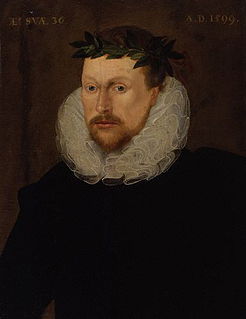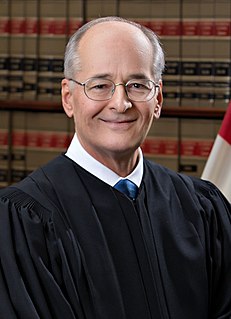A Quote by Mary Wollstonecraft
In fact, it is a farce to call any being virtuous whose virtues do not result from the exercise of its own reason.
Related Quotes
Never suppose that in any possible situation or under any circumstances that it is best for you to do a dishonorable thing however slightly so it may appear to you... Encourage all your virtuous dispositions, and exercise them whenever an opportunity arises, being assured that they will gain strength by exercise ... and that exercise will make them habitual.
By the worldly standards of public life, all scholars in their work are of course oddly virtuous. They do not make wild claims, they do not cheat, they do not try to persuade at any cost, they appeal neither to prejudice nor to authority, they are often frank about their ignorance, their disputes are fairly decorous, they do not confuse what is being argued with race, politics, sex or age, they listen patiently to the young and to the old who both know everything. These are the general virtues of scholarship, and they are peculiarly the virtues of science.
Manners or etiquette ('accessibility, affability, politeness, refinement, propriety, courtesy, and ingratiating and captivating behavior') call for no large measure of moral determination and cannot, therefore, be reckoned as virtues. Even though manners are no virtues, they are a means of developing virtue.... The more we refine the crude elements in our nature, the more we improve our humanity and the more capable it grows of feeling the driving force of virtuous principles.
The notion is that human beings are born, (as my Guru has explained many times,) with equivalent potential for both contraction and expansion. The ingredients of both darkness and light are equally present in all of us, and then it's up to the individual (or the family, or the society) to decide what will be brought forth - the virtues or the malevolence. The madness of this planet is largely a result of human being's difficulty in coming into virtuous balance with himself. Lunacy (both collective and individual) results.
If melodrama is the quintessence of drama, farce is the quintessence of theatre. Melodrama is written. A moving image of the worldis provided by a writer. Farce is acted. The writer's contribution seems not only absorbed but translated.... One cannot imagine melodrama being improvised. The improvised drama was pre-eminently farce.
It is left... to the juries, if they think the permanent judges are under any bias whatever in any cause, to take on themselves to judge the law as well as the fact. They never exercise this power but when they suspect partiality in the judges; and by the exercise of this power they have been the firmest bulwarks of English liberty.
Impeachment must not be a raw exercise of political power in which the House impeaches whoever it wishes for any reason it deems sufficient. Indeed, it is the solemn duty of all of the members of the House in any impeachment case to exercise their judgment faithfully within the confines established by our Constitution.
Shake off all the fears and servile prejudices under which weak minds are servilely crouched. Fix reason firmly in her seat, and call to her tribunal every fact, every opinion. Question with boldness even the existence of a god; because, if there be one, he must more approve the homage of reason, than that of blindfolded fear... Your own reason is the only oracle given you by heaven, and you are answerable not for the rightness but uprightness of the decision.



































